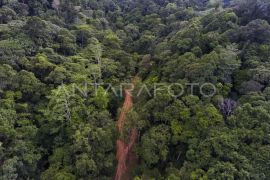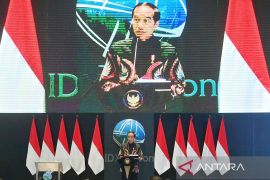The commitment has been outlined in Indonesia's Nationally Determined Contributions (NDC) document.
"Indonesia's great potential to become a key player in the carbon market further confirms Indonesia's important role in shaping a global sustainable economic landscape," the head of ICAEW Indonesia, Conny Siahaan, said in Jakarta on Wednesday.
ICAEW chartered accountant Julian Smith said that the forestry sector is an important contributor of carbon units from the supply side because it has great potential to generate carbon credits through various mitigation initiatives.
According to the Ministry of Environment and Forestry (KLHK), the area under forested land in Indonesia reached 96 million hectares, or 51.2 percent of the total land area, in 2022.
"On the demand side, coal-fired electricity producers are now required to reduce emissions by 25 percent by 2030 from their initial emissions, prompting them to evaluate the most cost-effective strategies, either through purchasing carbon credits from the Carbon Exchange, or by converting the way they operate to reduce greenhouse gas emissions," Smith said.
The Carbon Exchange itself can operate in conjunction with other carbon pricing mechanisms, including emission limits and carbon trading systems, as well as emission limits and taxes, which ensure that the market determines the price of carbon units based on supply and demand, just like traditional market dynamics, he added.
Moreover, he continued, there is a growing trend among financial institutions and investors to support sustainability initiatives and achieve net zero emissions (NZE), thus encouraging companies to prioritize and integrate sustainability and carbon initiatives into core business strategies.
The Carbon Exchange is a system that regulates trading or ownership records of carbon units with the main aim of creating incentives for companies and countries to reduce greenhouse gas (GHG) emissions by providing a mechanism for buying and selling emission permits or carbon credits.
Carbon credits represent the 'right' of a company to emit a certain amount of carbon emissions or other greenhouse gases in its industrial processes. One unit of carbon credit is equivalent to reducing emissions of one ton of carbon dioxide (CO2).
Related news: KLHK introduces benefits of carbon for economic improvement in Papua
Related news: Indonesia to reduce carbon emissions with low-carbon materials
Related news: Government, AstraZeneca launch 500 EVs for decarbonization
Translator: Muhammad Heriyanto, Cindy Frishanti Octavia
Editor: Azis Kurmala
Copyright © ANTARA 2023












